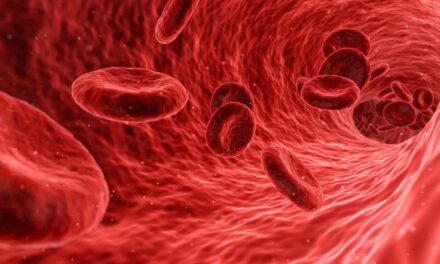Cambridge, UK – August 22, 2024 – A groundbreaking study published today in Molecular Metabolism reveals that the bacteria Bifidobacterium breve in a mother’s gut during pregnancy plays a crucial role in the brain development of her baby. Conducted by researchers at the University of Cambridge, this study in mice highlights how the presence of this beneficial bacterium supports healthy fetal brain development and suggests potential new strategies for preventing fetal growth abnormalities.
The study compared the brain development of fetuses from two groups of pregnant mice: one group had no bacteria in their gut, while the other was given Bifidobacterium breve orally during pregnancy. The results were striking. Fetuses of mothers who received Bifidobacterium breve exhibited increased nutrient transport to the brain and beneficial changes in cell processes related to growth, compared to those whose mothers lacked the bacterium.
Bifidobacterium breve is a type of “good bacteria” naturally present in the human gut and available in probiotic supplements. The study underscores the importance of a healthy gut microbiome, noting that factors such as obesity or chronic stress can disrupt the maternal gut microbiome and lead to fetal growth issues. Up to 10% of first-time mothers experience low birth weight or fetal growth restriction, which can increase the risk of conditions like cerebral palsy, anxiety, depression, autism, and schizophrenia later in life.
Dr. Jorge Lopez-Tello, a researcher at the University of Cambridge’s Centre for Trophoblast Research and the first author of the report, commented, “Our study suggests that providing ‘good bacteria’ to the mother could enhance the growth and development of her baby during pregnancy.” He further explained that this finding could shift the focus of treatments for fetal growth restriction from pharmaceutical solutions to probiotic interventions, potentially reducing side effects associated with drugs.
Professor Amanda Sferruzzi-Perri, senior author of the study and Fellow of St John’s College, Cambridge, added, “Current therapies for fetal growth restriction often focus on improving blood flow pathways in the mother. Our results suggest that enhancing maternal gut health might be a more effective approach.”
The study, which utilized mice to precisely control genetics, microorganisms, and environmental factors, now paves the way for further research to explore how these findings translate to humans. The researchers plan to monitor the brain development of the offspring post-birth and investigate interactions between Bifidobacterium breve and other gut bacteria.
Professor Lindsay Hall from the University of Birmingham, who also contributed to the research, emphasized the potential impact of this discovery: “Although more research is needed to fully understand the implications for human health, this study could pave the way for clinical trials exploring the role of the maternal microbiome in supporting healthy brain development before birth.”
This study highlights the crucial yet often overlooked influence of maternal gut bacteria on fetal development, marking a significant step towards innovative approaches in prenatal care and fetal health.












